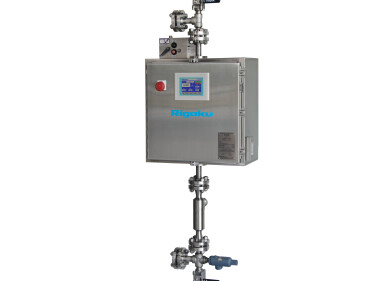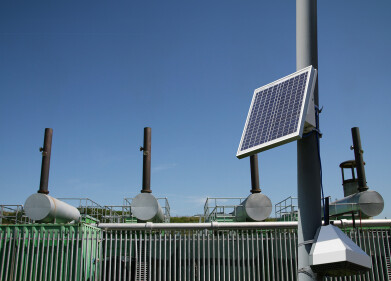Measurement and Testing
How is Hydrogen Used as a Fuel Source?
Apr 11 2022
When it comes to power, hydrogen is one of the most energy dense fuels. One kilogram of hydrogen gas generates the same amount of energy as almost three kilograms of gasoline, making the chemical element a highly efficient fuel source. With water and heat as its only by products, hydrogen offers incredible environmental credentials when sustainably produced. It’s also an amazingly versatile fuel source, with applications ranging from recreational vehicles to power plants.
Want to know more? Read on to find out more about how hydrogen is used as a fuel source.
Hydrogen as a power plant fuel
In the face of the intensifying climate crisis, hydrogen has emerged as a potential alternative to polluting fossil fuels like coal and oil. In the United States, an increasing number of power plants have been exploring hydrogen as a potential fuel source. Several combustion gas turbine plants have confirmed plans to switch to natural gas/hydrogen fuel blends, including the Long Ridge Energy Generation Project. Located in Ohio, the facility’s turbine will run on a mix of 95% natural gas and 5% hydrogen fuel, with the goal to eventually transition exclusively to renewable ‘green’ hydrogen.
In Utah, the Intermountain Power Agency is also embracing hydrogen as a fuel source, with plans to convert an existing coal-powered plant into a facility compatible with a 70/30 blend of natural gas and hydrogen. Like the Long Ridge Energy Generation Project, the long-term plan is to switch to 100% green hydrogen.
Fuel Cell Electric Vehicles (FCEVs)
While not as popular or widely used as EVs, FCEVs are gaining traction around the world. Like EVs, they’re powered by electric motors however instead of plugging into an external power source to recharge the electric battery, FCEVs use a built-in fuel cell to generate power. This takes place when hydrogen stored in the onboard fuel tank reacts with oxygen. The reaction generates electricity which powers the motor, turns the wheels and gets motorists from A to B with zero carbon emissions.
The FCEVs industry is on track for significant growth over the coming decade, with a recent Global Markets Insight study predicting a CAGR of more than 40% between 2021 and 2027. “Rising government initiatives and investment to enhance the infrastructure for electric vehicles charging points will propel the market expansion,” read the report.
While UK motorists can currently choose from just a handful of FCEV models, technology is set to improve over the coming decade. As FCEVs become more popular and attainable, industry experts maintain hydrogen fuel cell technology will play an important role in helping the UK achieve its net zero carbon emission goals by 2050.
Hydrogen may be one of the simplest elements on the periodic table, but it has big potential as the fuel source of the future. Find out more about what’s on the horizon for H in ‘Everything You Need to Know About Hydrogen Fuel’.
Digital Edition
PIN 25.5 Oct/Nov 2024
November 2024
Analytical Instrumentation - Picturing Viscosity – How Can a Viscometer or a Rheometer Benefit You? - Sustainable Grease Formulations: Evaluating Key Performance Parameters and Testing Method...
View all digital editions
Events
Nov 26 2024 Paris, France
Nov 26 2024 Amsterdam, Netherlands
Nov 27 2024 Istanbul, Turkey
Biogas Convention & Trade Fair 2024
Nov 27 2024 Hanover, Germany
Dec 03 2024 Dusseldorf, Germany



















